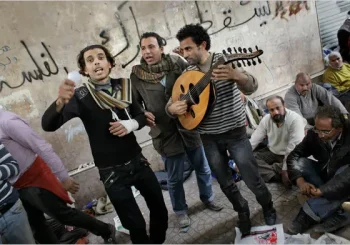Egyptian media mogul and businessman Mohamed El Amin has been sentenced on Monday, May 23 to three years in prison and a fine of EGP 200,000 (10,809.88 USD) for human trafficking and sexually assaulting seven girls at an orphanage he owned in Upper Egypt, local media reports.
The investigations revealed that El Amin harbored the victims in a home on the North Coast with the intent of sexually exploiting them, and his mobile phone included a number of photos with the victims and proof of his persistent presence in the home where the sexual exploitation took place.
The trial included the testimony of thirteen witnesses, the victims’ statements, examinations of the defendant’s mobile phone, proof from reports by the Forensic Medicine Authority, the National Council for Motherhood and Childhood, psychological and social research by the Ministry of Social Solidarity, as well as founder of the Lost Children Facebook page, Rami El-Gabali, who was first informed by the victims of the case through an audio recording.
The reports of the National Council for Motherhood and Childhood and the Ministry of Social Solidarity also revealed that the victims suffered from psychological disorders as a result of the abuse.
The audio recording by one of the victims, which was shared on the Lost Children Facebook page, revealed that El Amin repeatedly threatened to kick the girls out of the orphanage if they did not comply with his commands or if they told anyone about what was happening.
El Amin admitted that he took the girls to a home in the North Coast, but said he was accompanied by his wife and children on the trip, and that “he was like a father to them and had never thought of harming them in any way.”
The orphanage was founded by El-Amin in 2021, yet the residents of the institution were transferred to another home after its closure following the news.
El Amin is one of Egypt’s most powerful businessmen in the media industry, owned and managed 14 television channels and three newspapers, including the high-profile CBC channels, yet he sold his network to the government-affiliated United Media Services years ago.
Social media users reactions expressed rage regarding the court’s decision, comparing it to the case of Egyptian TikTok influencer Haneen Hossam, who as convicted of human trafficking and sentenced to 3 years in prison and a fine of EGP 200,000 in April of this year. Haneen was accused of inciting the young girls to “prostitution”, as she encouraged them to interact with strangers on Likee app and receive income for it.
Street children in Egypt are vulnerable toabuse and human trafficking, and can frequently end up being sexually and physically abused. The first shelter for human trafficking victims in Egypt was established in Qalyubia in 2020 by the Ministry of Foreign Affairs and the Ministry of Social Solidarity.
In 2010, the Government of Egypt introduced a law to criminalize sex and labor traffickers, with punishments ranging from three to 15 years imprisonment and fines.







Comments (0)